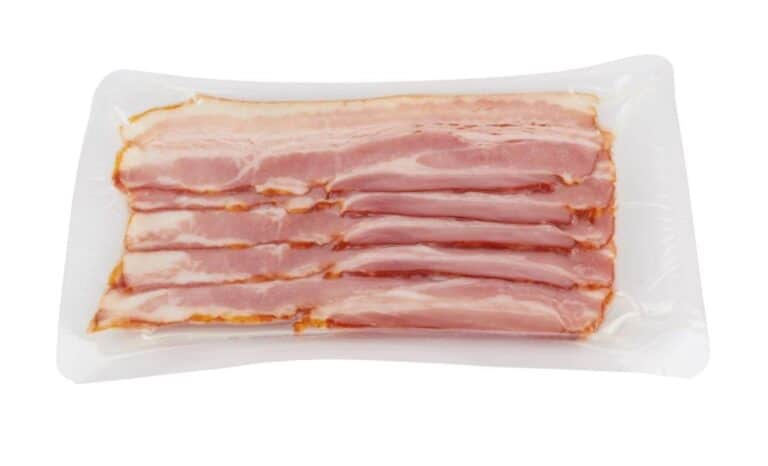What Makes Bagels Last Longer than Bread? Find Out Here

Bagels and bread are two of the most popular types of baked goods. However, one major difference between the two is their shelf life. Bagels tend to stay fresh for a longer time than bread.
Have you ever wondered why bagels seem to stay fresh for so much longer than bread? It’s not just your imagination; there’s actually a scientific reason for it.
In this article, we’ll take a closer look at the factors that contribute to bagels’ extended shelf life compared to bread.
Whether you’re a bagel aficionado or just looking to keep your bread from going stale too quickly, read on to learn more about what makes bagels different and how you can keep your baked goods tasting great for as long as possible.
Bagels vs. Bread: Composition and Preparation
Composition of Bagels and Bread
One of the main differences between bagels and bread is their composition. Bagels are typically made with high-gluten flour, which gives them their signature chewy texture.
On the other hand, bread is usually made with all-purpose or bread flour, which has a lower gluten content. The high gluten content in bagels makes them denser and less porous than bread, which helps prevent moisture from entering the interior of the bagel.
Differences in Preparation
The way bagels and bread are prepared also affects their shelf life. Bagels are boiled before they are baked, which creates a tough exterior that helps keep moisture out. This boiling process is not typically used in bread making, which leaves the bread with a softer crust that is more prone to moisture absorption.
Why Do Bagels Last Longer Than Bread?
There are a few reasons why bagels tend to last longer than bread, including:
1. The Boiling Process
One of the key differences between bagels and bread is the boiling process. While bread is typically baked in an oven, bagels are boiled before they are baked. This boiling process helps to create a dense, chewy texture and also helps to create a barrier around the dough that helps to keep moisture in.
This barrier, combined with the density of the dough, makes it harder for bacteria and mold to grow, which can help extend the shelf life of bagels. Bread, on the other hand, has a more open texture and is more susceptible to moisture loss, which can make it go stale more quickly.
2. The Addition of Sweeteners
Another factor that can contribute to the extended shelf life of bagels is the addition of sweeteners. Many bagel recipes call for the addition of sugar, honey, or malt syrup, which can help to keep the dough moist and also act as a natural preservative.
These sweeteners can help slow down the growth of bacteria and mold, which can help extend the shelf life of bagels. Bread, on the other hand, is typically made with flour, yeast, and water and does not contain any added sweeteners.
3. The Density of the Dough
Bagels are known for their dense, chewy texture, which is created by using a high-protein flour and by kneading the dough for a longer period of time. This dense texture can help keep moisture in and can also make it harder for bacteria and mold to grow.
Bread, on the other hand, is typically made with a lower-protein flour and is often kneaded for a shorter period of time, which can result in a lighter, airier texture. This texture can make it more susceptible to moisture loss and can also make it easier for bacteria and mold to grow.
4. The Storage Method
The way that bagels are stored can also contribute to their extended shelf life. Bagels are often sold in a sealed plastic bag, which helps to keep moisture in and can also help to prevent mold growth.
If you buy bagels in a plastic bag, it’s important to keep them in the bag until you’re ready to eat them, as this will help to keep them fresh. Once you’ve opened the bag, you can store the bagels in an airtight container or wrap them tightly in plastic wrap to help keep them fresh.
Bread, on the other hand, is often sold in a paper or plastic bag, which can allow moisture to escape and also make it easier for mold to grow. If you buy bread in a paper or plastic bag, it’s a good idea to transfer it to an airtight container or plastic bag once you’ve opened it to help keep it fresh.
What Is the Best Way to Store Bread and Bagels?
The best way to store bread and bagels is to keep them in airtight containers or bags to prevent them from drying out and going stale.
For long-term storage, the best way to store bagels is to wrap each uncut bagel in plastic or aluminum foil and then place it in a freezer bag. They should last this way for several months. For bread, it can be stored in a small clear bin with a tight lid, on a side shelf, on a microwave cart, or inside a top or bottom cabinet.
For maximum freshness and longevity, it is suggested to individually wrap each bagel with plastic wrap, then place them all within a larger zip-lock bag. It’s important to keep the bagels whole instead of storing them sliced, where they’ll dry out more quickly.
When it comes to bread, there are a few additional tips to keep in mind. First, make sure to keep it away from heat and moisture, as these can speed up the staling process. This means avoiding storing bread on the countertop or near the stove, as well as making sure it’s completely cooled before putting it away. Additionally, bread should be stored at room temperature, as refrigeration can actually cause it to dry out faster.
Another important consideration when storing bread is the type of bread you’re dealing with. For example, crusty bread like baguettes should be stored differently than soft sandwich bread. For crusty bread, it’s best to store it in a paper bag rather than a plastic one, as this will allow air to circulate and keep the crust crispy. Soft sandwich bread, on the other hand, can be stored in a plastic bag or a bread box.
While proper storage can help extend their shelf life, nothing beats the taste and texture of freshly baked bread and bagels. If you find yourself with more than you can use in a few days, consider freezing them for later use.
How Long Should I Keep Bagels and Bread in the Fridge?
Knowing how long to keep bagels and bread in the fridge is important to ensure that they stay fresh and safe to eat. The fridge is a great place to store bread and bagels because it helps to slow down the growth of microorganisms that can cause bread and bagels spoilage, but it is important to know how long they can be stored before they go bad.
When it comes to storing bagels in the fridge, they can last for up to a week if they are properly stored. Bagels should be stored in an airtight container or plastic bag to prevent them from drying out or absorbing moisture. If you are planning to store bagels for longer than a week, it is recommended to freeze them instead, as they can start to lose their flavor and texture after that time.
When storing bread in the fridge, it is important to note that it can dry out quickly in this environment. Bread can last up to a week in the fridge if it is stored in an airtight container or plastic bag, but it is recommended to only store bread in the fridge if it is a type of bread that tends to spoil quickly, such as homemade bread or bread with no preservatives.
If you have bread that you know you won’t be able to eat before it goes bad, you can also freeze it for longer storage. To freeze bread, wrap it tightly in plastic wrap or aluminum foil and place it in a freezer-safe container. Bread can be frozen for up to three months and should be thawed at room temperature before consumption.
It is important to note that the fridge can actually cause some types of bread and bagels to go stale more quickly than if they were left at room temperature. This is because the cold temperatures can cause the starches in the bread and bagels to harden and become less flavorful. Therefore, it is important to only store bread and bagels in the fridge if it is necessary to prevent spoilage and to make sure that they are properly stored to prevent them from drying out or absorbing moisture.
Is it Safe to Eat Expired Bagels or Bread?
While eating expired bagels or bread is not generally recommended, it is unlikely to make you seriously ill. However, there are some risks associated with consuming expired baked goods.
Eating moldy bread or bagels can lead to respiratory problems, allergic reactions, and even food poisoning in some cases. It’s best to avoid eating any baked goods that have visible mold growth.
If your bagels or bread are simply stale or dry but do not have mold growth, they are unlikely to make you sick. However, they may not taste very good, so it’s best to throw them away and buy a fresh batch.
Conclusion
In conclusion, there are several factors that contribute to bagels’ extended shelf life compared to bread. Bagels are made with high-gluten flour, boiled before baking, and have a lower moisture content than bread. These factors help prevent mold and bacteria growth and keep bagels fresh for a longer time. By understanding the differences between bagels and bread, you can make more informed choices about which baked goods to purchase and how to store them to keep them fresh.






